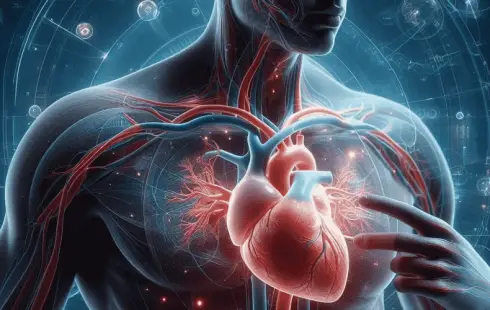
Ukrainian Diplomat Calls for Stronger Security Commitments Beyond NATO-Style Guarantees
Section: Politics
 Heart problems, often referred to as cardiovascular diseases, represent a significant public health concern worldwide. From coronary artery disease to heart failure, these conditions affect millions of people, leading to significant morbidity and mortality. In this article, we delve into the complexities of heart problems, exploring their causes, symptoms, and strategies for prevention and treatment.
Heart problems, often referred to as cardiovascular diseases, represent a significant public health concern worldwide. From coronary artery disease to heart failure, these conditions affect millions of people, leading to significant morbidity and mortality. In this article, we delve into the complexities of heart problems, exploring their causes, symptoms, and strategies for prevention and treatment.
Heart problems encompass a wide range of conditions that affect the heart and blood vessels. Some of the most common heart problems include:
Causes and Risk Factors
Heart problems can be caused by a variety of factors, including:
Symptoms of Heart Problems
The symptoms of heart problems can vary depending on the specific condition but may include:
Prevention and Treatment
Preventing heart problems involves adopting a heart-healthy lifestyle, including:
Treatment for heart problems varies depending on the specific condition but may include medications, lifestyle changes, medical procedures, or surgery. In some cases, implantable devices such as pacemakers or defibrillators may be recommended to regulate heart rhythm or support heart function.
Heart problems represent a significant health burden worldwide, affecting millions of people and leading to significant morbidity and mortality. Understanding the causes, symptoms, and risk factors for heart problems is essential for promoting cardiovascular health and preventing heart disease. By adopting a heart-healthy lifestyle and seeking timely medical care, individuals can reduce their risk of developing heart problems and enjoy a longer, healthier life.

Section: Politics

Section: News

Section: News

Section: News

Section: Arts

Section: News

Section: News

Section: News

Section: News

Section: News

Health Insurance in Germany is compulsory and sometimes complicated, not to mention expensive. As an expat, you are required to navigate this landscape within weeks of arriving, so check our FAQ on PKV. For our guide on resources and access to agents who can give you a competitive quote, try our PKV Cost comparison tool.

Germany is famous for its medical expertise and extensive number of hospitals and clinics. See this comprehensive directory of hospitals and clinics across the country, complete with links to their websites, addresses, contact info, and specializations/services.

Join us at the Kunstraum in der Au for the exhibition titled ,,Ereignis: Erzählung" by Christoph Scheuerecker, focusing on the captivating world of bees. This exhibition invites visitors to explore the intricate relationship between bees and their environment through various artistic expressions,...
No comments yet. Be the first to comment!